
President François Bozizé has said that one of his priorities is to get the support of the international community. This has indeed been visible in his relations to donor countries and international organisations. At the same time it is difficult to have an open policy towards neighbouring countries when they are used as safe haven by rebels regularly attacking Central African Republic (C.A.R.), or when one allied country is in war with another.

Although Togo's foreign policy is nonaligned, it has strong historical and cultural ties with western Europe, especially France and Germany. Togo is a member of the Commonwealth of Nations, exchanging high commissioners with other Commonwealth countries. It recognizes the People's Republic of China, North Korea, and Cuba, and re-established relations with Israel in 1987.
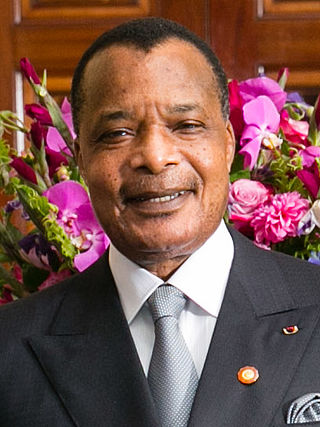
Denis Sassou Nguesso is a Congolese politician and former military officer who became president of the Republic of the Congo in 1997. He served a previous term as president from 1979 to 1992. During his first period as president, he headed the Congolese Party of Labour (PCT) for 12 years. He introduced multiparty politics in 1990, but was stripped of executive powers by the 1991 National Conference, remaining in office as a ceremonial head of state. He stood as a candidate in the 1992 presidential election but placed third.
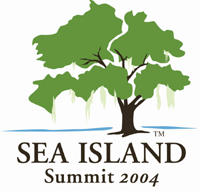
The 30th G8 summit was held in Sea Island, Georgia, United States, on June 8–10, 2004.

The 26th G8 summit was held in Nago, Okinawa Prefecture, Japan, on 21–23 July 2000.

The foreign relations of the Sahrawi Arab Democratic Republic (SADR) are conducted by the Polisario Front, which maintains a network of representation offices and embassies in foreign countries.
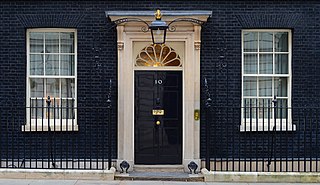
The 3rd G7 Summit was held in London, United Kingdom between 7–8 May 1977. The venue for the summit meetings was the British Prime Minister's official residence at No. 10 Downing Street in London.
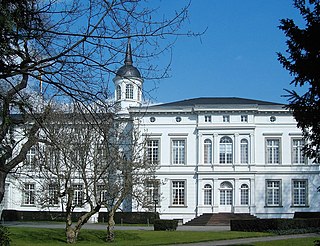
The 4th G7 Summit was held at Bonn, West Germany between 16 and 17 July 1978. The venue for the summit meeting was at the former official residence of the Chancellor of the Federal Republic of Germany in Bonn, the Palais Schaumburg.
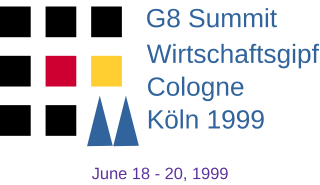
The 25th G8 Summit was held in Cologne, Germany, on 18–20 June 1999. The venue for this summit meeting was the Museum Ludwig in the central city.
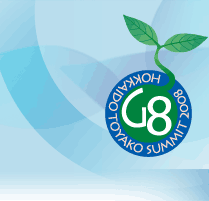
The 34th G8 summit was held in the town of Tōyako, Hokkaido, Japan, on July 7–9, 2008. The locations of previous summits hosted by Japan include Tokyo and Nago, Okinawa (2000). The G8 summit has evolved beyond being a gathering of world political leaders to become an occasion for a wide variety of non-governmental organizations, activists and civic groups to congregate and discuss a multitude of issues.

The 18th G7 Summit was held in Munich, Germany between 6 and 8 July 1992. The venue for the summit meetings was at the Residenz palace in central Munich.

The 22nd G7 Summit was held in Lyon, France, on 27–29 June 1996. The venue for this summit meeting was the Museum of Contemporary Art, Lyon . The locations of previous summits to have been hosted by France include: Rambouillet (1975), Versailles (1982), and Paris (1989).

Throughout the Cold War, Ivory Coast's foreign policy was generally favorable toward the West. In particular, Félix Houphouët-Boigny kept relations with France that was among the closest between any African country and a former colonial power. The country became a member of the United Nations at independence in 1960 and participates in most of its specialized agencies. It is also an associate member of the European Union. In general, President Bédié initiated and maintained relations with many countries of the European Union and Asia. Ivory Coast maintains a wide variety of diplomatic contacts.
Tokyo International Conference on African Development (TICAD) is a conference held regularly with the objective "to promote high-level policy dialogue between African leaders and development partners." Japan is a co-host of these conferences. Other co-organizers of TICAD are the United Nations Office of the Special Advisor on Africa (UN-OSAA) and the United Nations Development Programme (UNDP). The series has included: TICAD I (1993); TICAD II (1998); TICAD III (2003); TICAD IV (2008); TICAD V (2013). The next conference is scheduled for Kenya in August 2016. It will be the first time the event will be held in Africa, previous conferences were all held in Japan.
The Hideyo Noguchi Africa Prize honors men and women "with outstanding achievements in the fields of medical research and medical services to combat infectious and other diseases in Africa, thus contributing to the health and welfare of the African people and of all humankind." The prize, officially named "The Prize in Recognition of Outstanding Achievements in the Fields of Medical Research and Medical Services in Africa Awarded in Memory of Dr. Hideyo Noguchi," is managed by Japan International Cooperation Agency (JICA).
Sir Brian Mellor Greenwood, CBE, FRCP, FRS is a British physician, biomedical research scientist, academic, and recipient of the first Hideyo Noguchi Africa Prize.
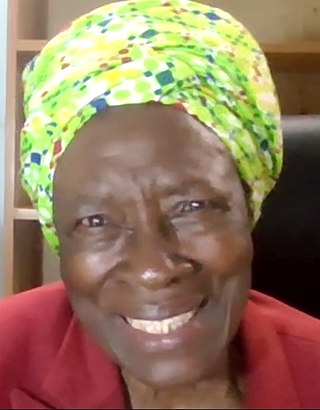
Miriam Khamadi Were is a Kenyan public health advocate, academic, and recipient of the first Hideyo Noguchi Africa Prize. In 2022, she has been nominated for the Nobel Peace Prize for her work in public health.

Mexico–Senegal relations are the diplomatic relations between the United Mexican States and the Republic of Senegal. Both nations are members of the Group of 15 and the United Nations.

Japan–Nigeria relations are the bilateral relations between Japan and Nigeria. The State of Japan has an embassy in Abuja and the Federal Republic of Nigeria has an embassy in Tokyo.















